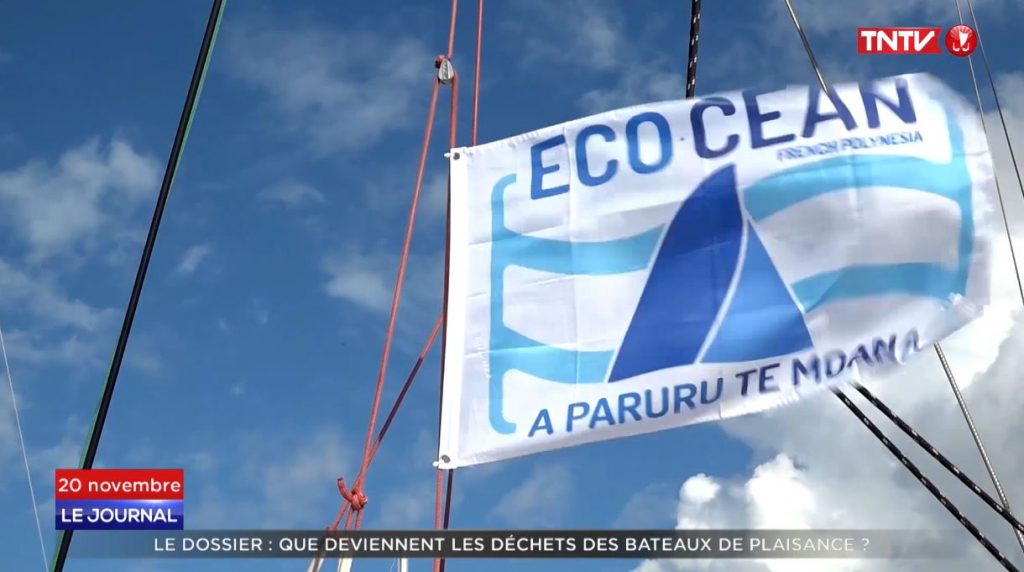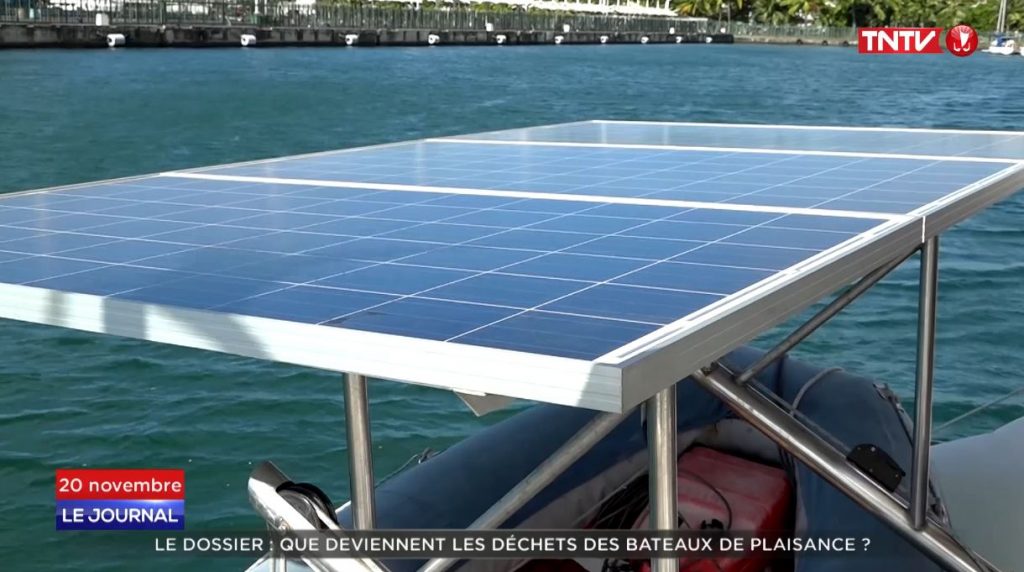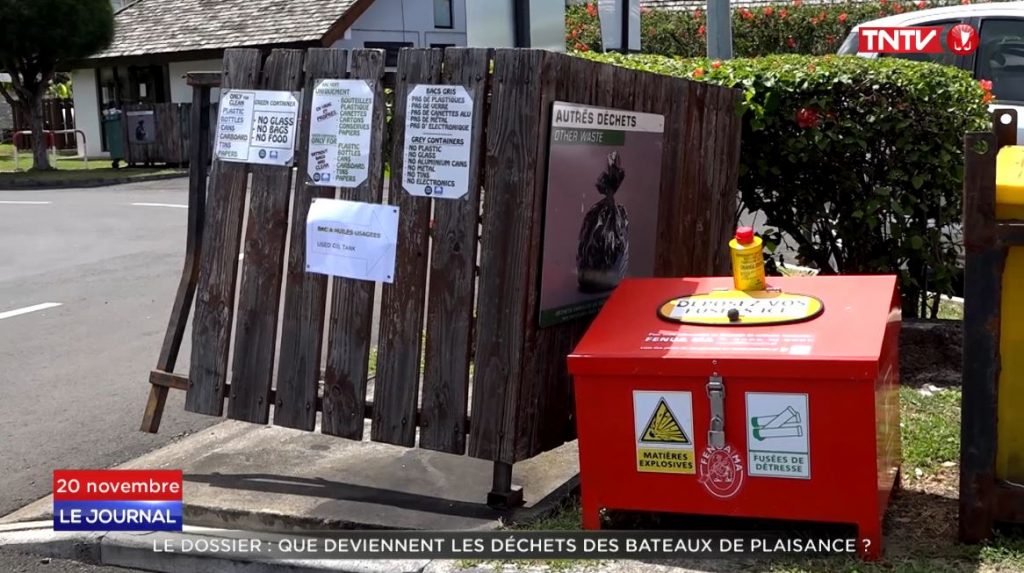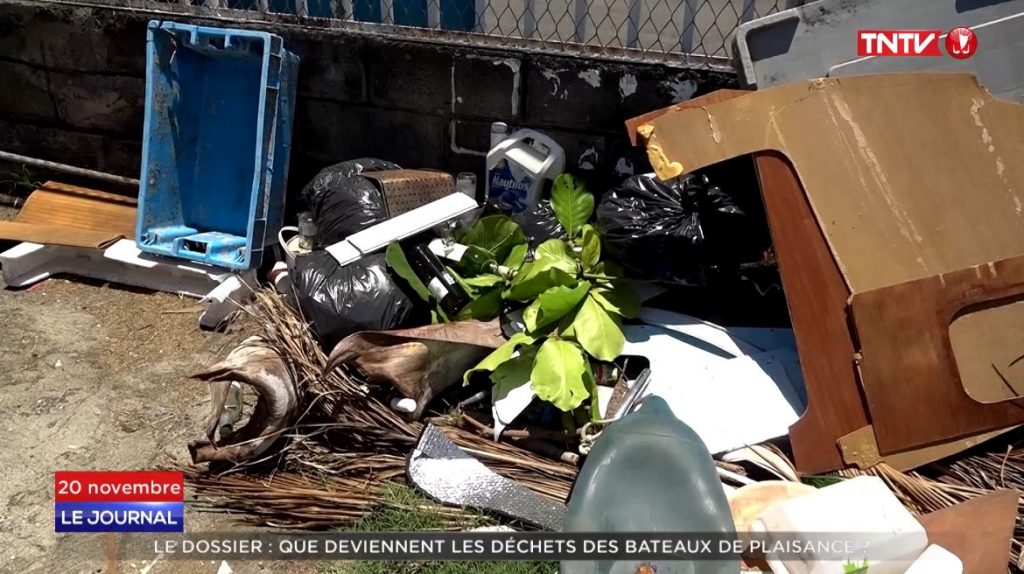On land or on the sea, sorting is a reflex for eco-citizens. As part of the waste reduction week, we focused on sailors who have chosen to live aboard a sailboat. Often singled out and accused of polluting the lagoons, they defend themselves: these seafarers advocate an ecological lifestyle.
An eco-label to change misconceptions about the way of life of seafarers: the association of sailboats in Polynesia has put in place a charter of good conduct. A guide to inform about sorting waste, water treatment, maintenance of the ship or even respecting access. It is intended for both boaters arriving in Polynesia and those already moored in marinas.

“Today there is a lack of understanding of the lifestyle and needs of boaters. The association is there for that, and it is developing this eco-label to create a communication interface between boaters and professionals, or marinas, all the people who intervene and are affected by boating, ”explains Éric Pinel, vice-president of the Association of Sailboats in Polynesia.
Life aboard a sailboat is in itself ecological. Energy self-sufficiency is produced by solar panels and wind turbines. Water consumption is also reduced. Desalination systems produce fresh water. More sensitive point: the black water, that of the toilets on board. The storage tank is compulsory for pleasure vessels with toilets and built after 2008.

Sailboats moored to the pontoon occasionally empty it because they often use the amenities of marinas. It is the boats at anchor that are more often pointed out. At the Taina marina, of the 136 boats moored to dead bodies, only 26 are inhabited.
Living on a boat is also a change in consumption mode: reduce plastic packaging, think of bulk products… This boater, for example, chooses healthier household products on a daily basis: “These are grandmother's recipes all simple. For the laundry, we use traditional black knowledge. We do our laundry ourselves. It's relatively simple, ”says Éric Pinel.
And as on earth, sorting waste is possible. At the Taina marina, blue flag for the seventh consecutive year, infrastructures are made available to boaters: glass and oil terminal, but also the green and gray bins. However, there is still an effort to be made in sorting despite the many consignments posted.

"We recognize that there are certain boaters who do not have a correct attitude" admits Eric. "But often it is due to a lack of information, so this eco-label and this charter are there for that."
Sorting is also the workhorse of the management of the Tahiti Yacht Club. Above all, we develop the learning of sailing with the younger generation. The site welcomes only fifteen permanent residents. Again, there is no shortage of instructions for sorting properly. "We made the effort to present on a table all the selective sorting in the town of Arue, to know exactly how it is going, with the detail of the trash pickups etc." specifies Jessee Besson, the director of the Yacht Club.

A garbage space is available, but it must be renovated. Despite this, the Yacht Club notes that a minority tarnishes the image of the seafarers. Video surveillance installed for security reasons has made it possible to identify boaters not registered with the club, depositing their waste in the middle of the night. on the pontoon. And for the sorting of the oil cans, there too there are efforts to be made, deplores Jessee who denounces bad behavior of certain people.
At the Papeete marina, only 4 sailboats are permanently manned. The site mainly accommodates boats in transit. For foreign crews concerned about respecting the environment, once waste ashore is a problem. The capital's marina is not equipped with voluntary drop-off points. It’s up to sailors to find them in the city.





